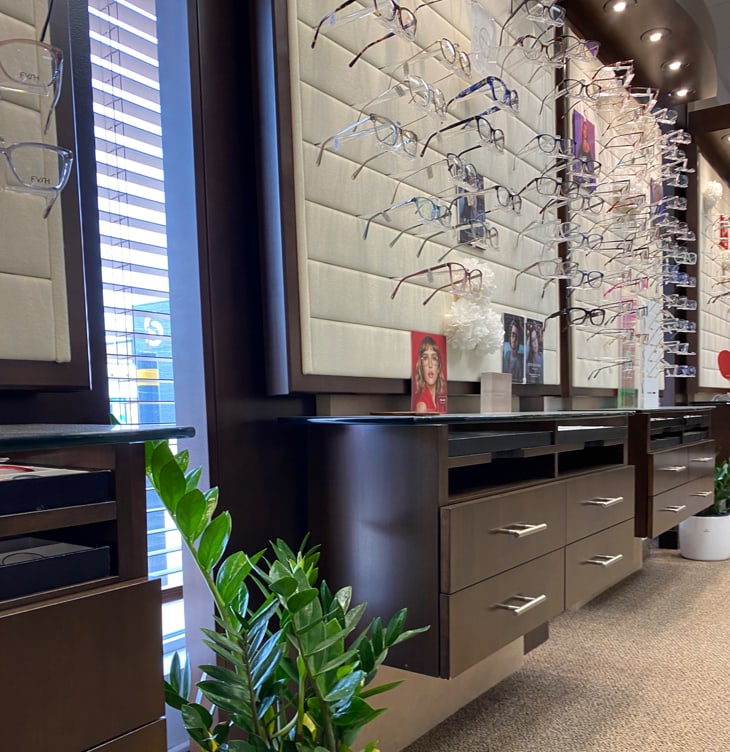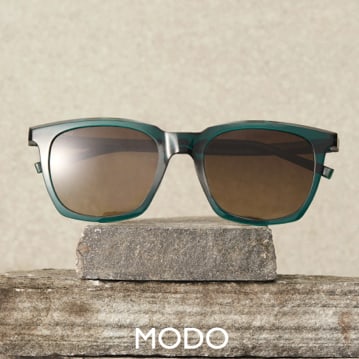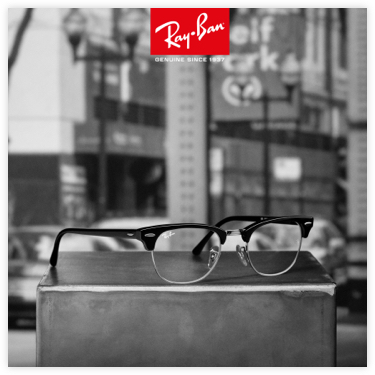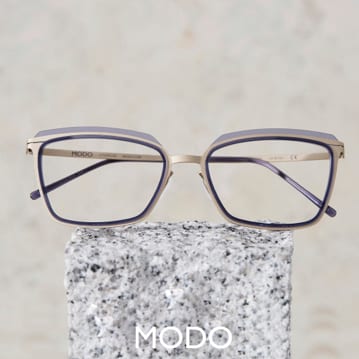Many Canadians are familiar with dry and itchy eyes. The trouble with dry and irritated eyes is that the cause can be hard to narrow down. Chronic dry eye disease is a common culprit, but other common reasons for irritated eyes include allergies, eye infections, or contact lens wear and care.
An over-the-counter (OTC) lubricating eye drop, or artificial tears, is often an adequate treatment. But if you have severe or ongoing symptoms, it’s essential to see your eye doctor for a comprehensive eye exam.
Dry eyes could be an early sign of eye disease; your doctor is the best professional to guide you in selecting an eye drop tailored to your unique condition and is skilled in identifying and managing all ocular surface diseases.
Dry Eye Disease
Dry eye disease is commonly called “dry eye” because the condition’s primary symptoms result from a lack or insufficient amount of tears at the eyes’ surface. There are two major subtypes of dry eye, aqueous deficiency and evaporative.
A decreased tear production by the lacrimal gland is called aqueous deficiency dry eye. Optometrists often refer to meibomian gland dysfunction or meibomitis to describe evaporative dry eye, a lack of oil in the tear film. In both cases, the lack of quality tears at the eye’s surface decreases your eyes’ lubrication, leading to uncomfortable symptoms.
Symptoms of Dry Eye Disease
As the name implies, a dry eye feeling is a primary symptom of dry eye disease, but other common signs include:
- Stinging or burning feeling
- Feeling like there is a foreign object in your eye
- Stringy, mucous discharge
- Watering eyes
- Pain while wearing contact lenses
Treatment
Lubricating eye drops are typically the first line of treatment to manage dry eye symptoms. If those don’t provide adequate relief, other treatment options may include:
- Punctal plugs
- Oral or topical medication to help with inflammation caused by dry eye
- Oral or topical medication to stimulate tear production
- Vitamins and supplements for dry eye
- Specialty contact lenses—scleral lenses, for example
- Proper lid hygiene
- Meibomian gland expression, warm compresses, and lid massage; These treatments can be highly effective if you have evaporative dry eye. Meibomian gland dysfunction is a leading cause of this type of dry eye, and the expression is a great way to stimulate the glands into healthy function.
Other Common Reasons for Dry & Itchy Eyes
Dry eye disease may be a common culprit for dry, itchy eyes, but it’s certainly not the only reason. The following are a few other reasons:
Allergies
A person with occasional dry eye symptoms may have allergies. Eye allergies share symptoms such as redness, burning, and itching. Dry eye decreases the number of tears used to clean allergens out of the eye, and the allergies trigger an inflammatory response disrupting the stability of the tear film.
One thing to remember when treating eye allergies with oral antihistamine medication is that, in some instances, those treatments can worsen dry eyes, not helping your ocular allergies.
Contact Lens Wear and Care
Even if you already have prescription glasses, you’ll need a separate contact lens fitting exam to start wearing contacts.
During this exam, your eye doctor assesses the health of your eyes and takes measurements to determine which type of contact lens will be best for your eyes. Your doctor is knowledgeable about the latest technology in contact lenses and can make the best recommendation to prevent dry eyes. Most importantly, your eye doctor can review proper wear and care to avoid any complications related to contact lens wear.
Giant Papillary Conjunctivitis
One of the main causes behind dry and itchy symptoms with contact lenses is giant papillary conjunctivitis (GPC). When you wear contact lenses, proteins may deposit at the surface of the lens. As those proteins age, they can trigger an inflammatory or defense response in the palpebral conjunctiva, leading to an itching and dry eye sensation.
Improper wear can also lead to infiltrative keratitis, causing chronic irritation with contact lenses. Urgent treatment is essential to prevent eye complications and ensure the long-term use of contact lenses.
If you often deal with dry eye symptoms, your eye doctor may recommend a specialty contact lens.
Eye Infection
Dry eyes, stringy discharge, and itchiness often accompany conjunctivitis (pink eye), a common infection. Pink eye is usually viral, but it can also be bacterial. Additionally, many other types of eye infections could cause these symptoms and more.
Common symptoms of an eye infection include:
- Yellow or green discharge
- Sticky eyelids when waking up
- Red, itchy eyes
- Dry eyes
- Eye pain
- Sudden blurry vision
- Light sensitivity
If you notice these signs, see your eye doctor as soon as possible to rule out an infection.
Lubricate & Relieve the Itch
Who cares why your eyes are dry and itchy, right? You just want it to stop.
A couple of OTC eye drops are all the treatment eyes need in many cases of occasional dryness. If you’re experiencing dryness more often than usual, try using a preservative-free eye drop to prevent unnecessary eye irritation.
But if eye drops don’t provide the relief you need, you should make an appointment with your eye doctor. They can rule out anything more serious and typically offer direction on getting rid of the symptoms.
Talk to Your Optometrist About Your Dry Eyes
We live in the Google era, where you can search for your symptoms and find out exactly what the internet thinks is wrong with you. But Google hasn’t undergone the same medical training as your eye doctor, and it doesn’t care about your eyes as much as we do.
If you’re sick of having dry eyes in our Canadian winter, contact our office today. The professional team at Old South Optometry is happy to answer your questions and book you in to see one of our optometrists.











